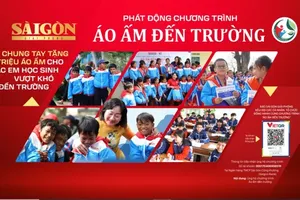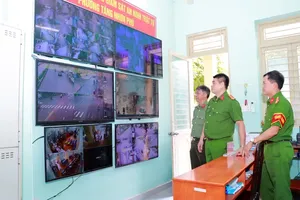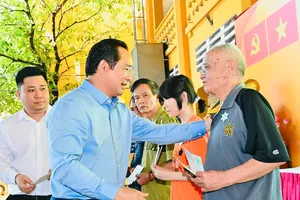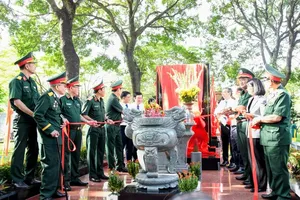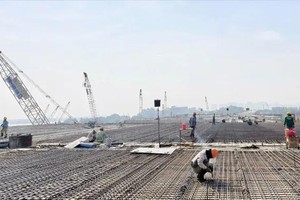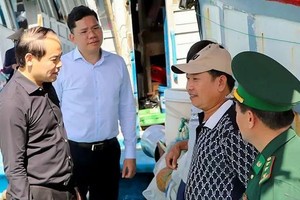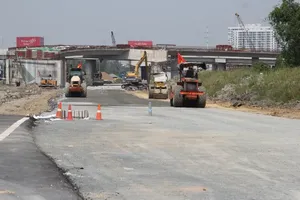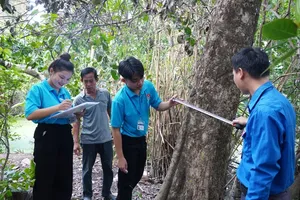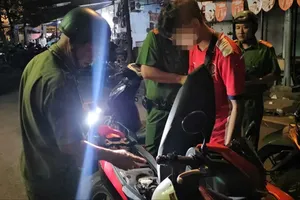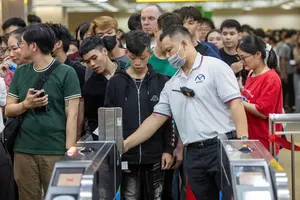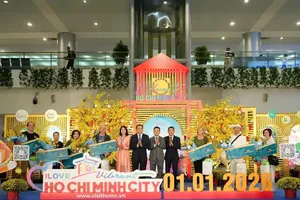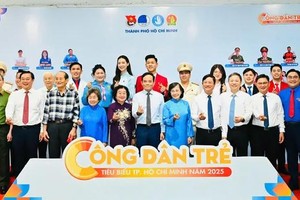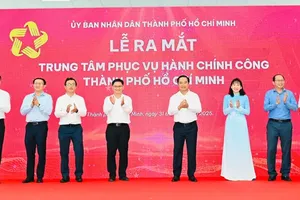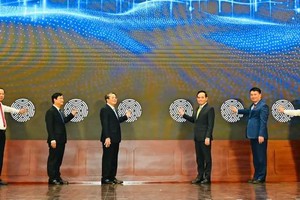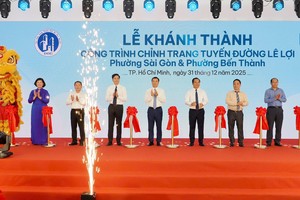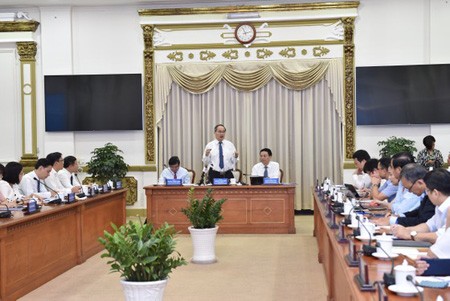
The digital transformation program of HCMC is based on the national one and the project to transform HCMC into a smart city in the period from 2017 – 2020 with a vision to 2025 as well as the urban digital government architecture.
It has 6 foundation goals to be fulfilled until 2025: the rate of online level-3 and level-4 public services reaching 50 percent, with at least 90 percent of residents and businesses satisfied; citizen and business information being digitalized and stored at the city database center; digital economy accounting for 25 percent of GRDP, and annual working performance at 7 percent at the smallest; the rate of residents and businesses owning a digital payment account occupying over 60 percent; broadband infrastructure offered at 95 percent of households in the city; and 4G/5G network services as well as smart phones being popularized citywide.
In 2030, there are 4 goals to be completed: 100 percent of online level-4 public services offered in different smart devices, including smart phones; full database platform of a smart city introduced to serve the task of developing a digital government, economy, and society; digital economy accounting for 40 percent of GRDP, with annual working performance reaching at least 9 percent; the rate of residents and businesses owning a digital payment account occupying over 85 percent.
Vice Chairman of HCMC People’s Committee Duong Anh Duc shared that the city has already implemented its Local Government Service Platform (HCM LGSP) to connect and share its databases with those of ministries and industries via the national database sharing platform. This is expected to increase the ability of high-leveled public service offering to both citizens and businesses while minimizing investment repetition thanks to a clear identification of components and information systems in the e-government.
He himself introduced 4 missions and solutions to successfully carry out this digital transformation process, 6 missions to create a digital government, and 4 missions to develop a digital economy, followed by a confirmation to digitally transform the 10 fields of healthcare, education, transport, finance-banking, tourism, agriculture, logistics, environment, energy, and human resources training.
“Until 2030, HCMC will be a smart city with a basic and wide renovation of the digital municipal authorities, digital businesses, and digital society. This process will undoubtedly encounter various obstacles, asking for the close cooperation among industries, organizations, and businesses”, said the Vice Chairman.
President of HCMC Computer Association (HCA) Lam Nguyen Hai Long stated that HCA is planning to collaborate with other job associations to create an ecosystem to serve this special process. Members of the ecosystem is going to finish a list of possible products and solutions to the digital transformation process right in this July. HCA is also going to form a club of professionals in the field to share consultation information and recommend suitable products for those in need.
Mr. Long suggested that state companies in the city use at least 30 percent of the scientific-technological budget for the implementation of IT and digital transformation, and that each ward in HCMC runs one prominent IT application to serve the public.
President of HCMC Union of Business Associations (HUBA) Chu Tien Dung proposed that the city introduce proper policies to aid businesses to begin their own digital transformation process while ensuring necessary infrastructure, security, and legal environment for trading activities. This will boost confidence among enterprises in HCMC.
Minister of Information and Communications Nguyen Manh Hung commented that HCMC is the pioneer in the digital transformation process; and to be successful, it is essential to raise the awareness of the municipal authorities and organization leaders.
He added that a change in business model, operation, or administration tasks should begin with simple activities within the range of the city. In addition, HCMC should allocate more budget for IT instead of the current 0.4 percent.
Secretary of HCMC Party Committee Nguyen Thien Nhan said that HCMC was the first in Vietnam to announce the project to transform into a smart city (at the end of 2017), and is still the first to announce the digital transformation program – only 1 month after the national one was publicized.
This has shown the fierce determination as well as the trust of the municipal authorities in IT businesses and professionals, universities to develop the city via human intelligence and full exploitation of IT.
He then stated that the goal of digital transformation is to boost working performance and decrease overhead cost through smart solutions and digitalization for state officers to better serve the public.
HCMC Party Chief raised the issue of forming a strong database, telecommunications and digital infrastructure, and even Vietnamese cloud computing to safely store data of the Vietnamese. He warned related people about cyber security and asked that a committee in the IT industry take responsibility for this aspect.
He praised the suggestion to introduce criteria to evaluate the digitalization level of organizations and industries.
Secretary Nhan commented that digital transformation can be carried out in various locations, especially the highly interactive innovation district in the east of HCMC, which is supposed to finish its planning stage at the end of this year.
As to budget distribution, he suggested that HCMC does need to increase the amount of money spent on IT since the global average expense for IT is around 1 percent. There should be a report on the effectiveness of this new allocation, along with possible difficulties and their reasons.
Finally, the Party Chief discussed prioritized matters. Firstly, HCMC needs to cooperate with Viettel Military Industry and Telecoms Group to form a center for businesses to introduce new products and offer consultation related to digitalization services or smart products. The center should take turn to display products in the fields of healthcare, education, smart tourism, transport, construction – environment, state management, along with contests on IT solutions and products.
Secondly, HCMC must focus on high-leveled IT and AI human resources training to meet international standards like what was mentioned in the Draft of the Political Report for the 11th HCMC Party Congress. Simultaneously, the city must launch a key program to develop innovative startups and IT products as staple ones.
He then asked that Vice Chairman Duong Anh Duc deliver details of these two programs to IT enterprises sited in HCMC to call for contribution.
Chairman of HCMC People’s Committee Nguyen Thanh Phong welcomed all suggestions of participants and promised that all forces in HCMC will try their best for the success of the digital transformation process in the city.
Regarding digital economy, he mentioned that HCMC is going to focus on 10 key fields of healthcare, education, transport, finance and banking, tourism, agriculture, logistics, environment, energy, and human resources training while maintaining the promotion of e-commerce and perfecting the innovative startup ecosystem.
Chairman Phong asked that the local authorities in each district, the leaders of each department and industry complete their own plan to carry out the digital transformation process before August 15, along with a list of constructions or projects for this process. These plans are to be submitted to HCMC People’s Committee to add to the public investment plan in the middle term from 2021 – 2025.
